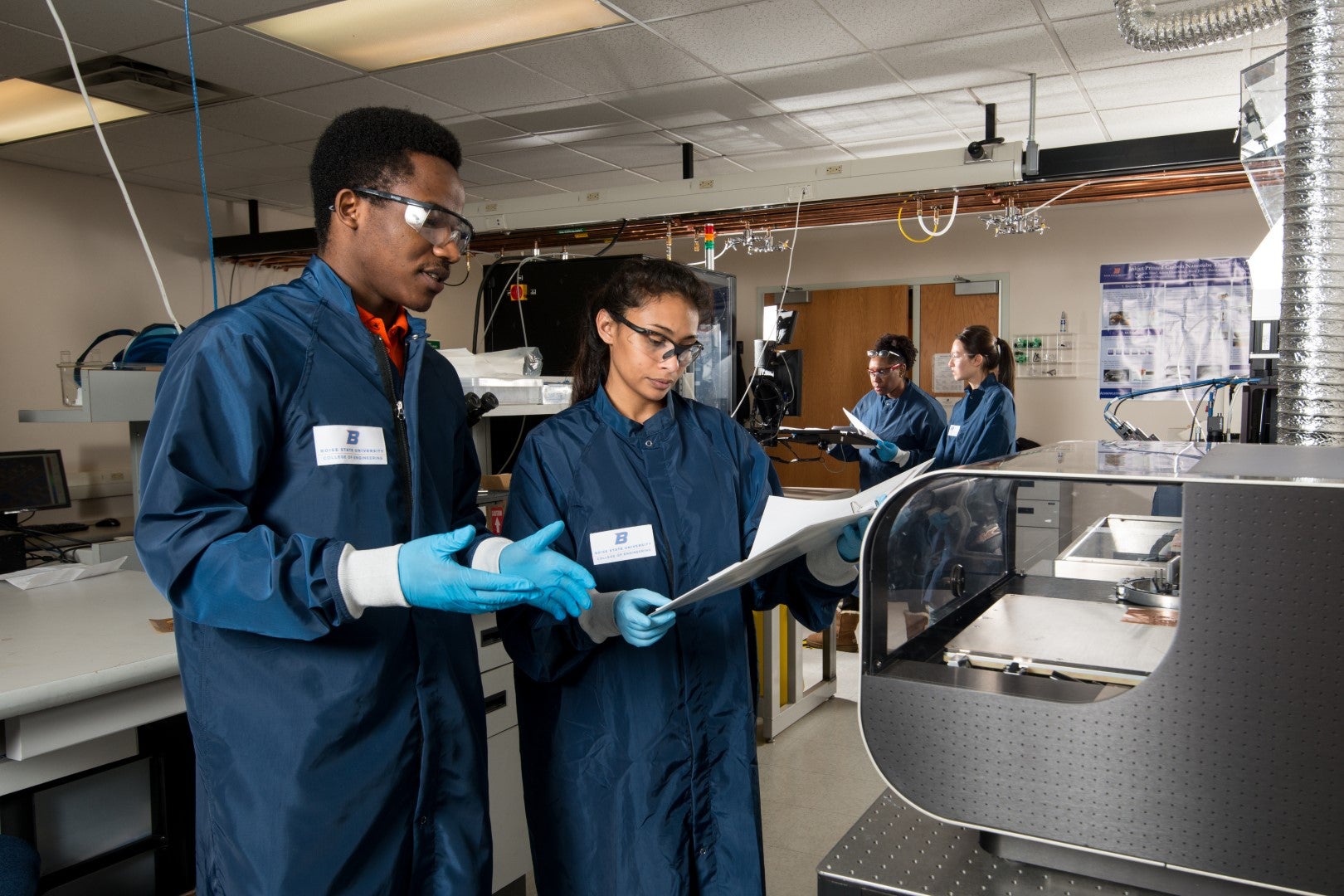
The Engineering Plus program prepares students to put their engineering degree to work in a wide variety of engineering roles in business, industry, government, and education. Our graduates are prepared through customized pathways adding disciplines of interest to a solid foundation of mathematics, science, and engineering coursework. Their academic work is complemented by high-impact experiences on research teams, community-based learning, internships, and through study abroad. Engineering design courses in each year of the curriculum provide rich team-based learning experiences to build professional skills including communication, leadership, and empathy.
Program Educational Objectives
The Engineering Plus program prepares its graduates to make contributions in many diverse areas. Specifically, within five years of graduation our graduates will be:
- established in professional careers or enrolled in a graduate or professional degree program.
- advanced in professional standing based on their technical accomplishments and accumulated additional technical expertise.
- applying the principles of human-centered engineering design in their professional pursuits.
- ethically committed to improving the quality of life for people around the world.
Student Outcomes
The undergraduate degree in Engineering Plus prepares students to meet the following outcomes upon graduation:
- an ability to identify, formulate, and solve complex engineering problems by applying principles of engineering, science, and mathematics.
- an ability to apply engineering design to produce solutions that meet specific needs with consideration of public health, safety, and welfare, as well as global, cultural, social, environmental, and economic factors.
- an ability to communicate effectively with a range of audiences.
- an ability to recognize ethical and professional responsibilities in engineering situations and make informed judgments, which must consider the impact of engineering solutions in global, economic, environmental, and societal contexts.
- an ability to function effectively on a team whose members together provide leadership, create a collaborative and inclusive environment, establish goals, plan tasks, and meet objectives.
- an ability to develop and conduct appropriate experimentation, analyze and interpret data, and use engineering judgment to draw conclusions.
- an ability to acquire and apply new knowledge as needed, using appropriate learning strategies.
Inspiration
Innovation is a collaborative venture. Boise State’s Engineering Plus degree was done so with the model that Jacquelyn Sullivan and her colleagues at CU Boulder created.
December’s issue of The Magazine of the Society of Women Engineers described the development and rapid growth of CU’s program. It also featured Boise State’s program, which is the first to stand up the innovative model at another institution.
See Meet Engineering Plus in the SWE Conference 2018 online edition of SWE Magazine (and read more about Boise State’s fast-growing program on p. 50).
#EngineeringPlus, #SWE, #Diversity, #innovation#BoiseState